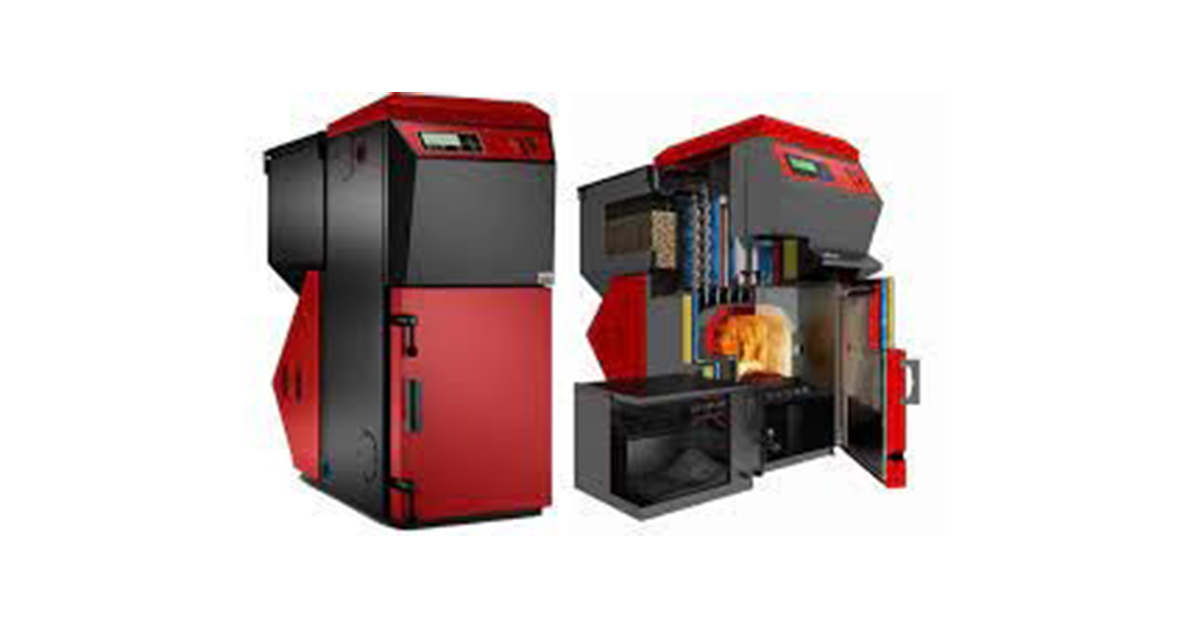Home heating could be getting a greener makeover. Biomass boilers, which burn wood byproducts like pellets and chips, are emerging as an alternative to traditional fossil fuel systems.
While these boilers offer a renewable energy source and potential cost savings, challenges like high upfront costs could limit their widespread use.
The allure of sustainability
The primary driver for biomass boilers is their environmental appeal. Unlike fossil fuels, wood fuel is considered carbon neutral. As trees grow, they absorb carbon dioxide from the atmosphere. When burned in a biomass boiler, the carbon released is roughly equivalent to the amount absorbed during the tree’s lifespan. This closed-loop system makes biomass a much more sustainable heating option compared to traditional methods.
Lower fuel costs, higher upfront investment
Biomass fuel itself can be cheaper than gas, oil, or electricity on a per-unit basis.
Wood pellets, currently average around 7.9 pence per kilowatt-hour in the UK, compared to 10.3 pence for gas. However, the upfront cost of a biomass boiler installation can be significantly higher than a traditional gas boiler, ranging from £4,000 to £21,000.
This price disparity is partly due to the additional equipment required, such as a buffer tank for heat storage and a dedicated fuel storage unit.
The Boiler Upgrade Scheme, a UK government initiative, offers grants of up to £5,000 to help offset the installation costs of biomass boilers. This can significantly improve the financial viability of the system for homeowners. Additionally, these machines boast high-efficiency ratings, exceeding 90% in most cases. This translates to lower fuel consumption over time, further enhancing the long-term cost savings potential.
Space constraints and maintenance considerations
Another factor to consider is space. A biomass boiler and fuel storage units require more space compared to traditional boilers. This may not be suitable for smaller homes or those lacking dedicated storage areas. Additionally, maintenance requirements vary depending on the type of biomass boiler. Manual models require regular ash removal and fuel refilling, while automatic models with hoppers handle these tasks automatically but come at a premium price.

Reliability and fuel availability
While sustainability is a key driver, homeowners also prioritize reliability. These boilers generally operate efficiently, but concerns exist regarding fuel availability and consistency. Wood pellet quality can vary, potentially impacting boiler performance. Additionally, securing a reliable and affordable fuel source requires planning and potentially larger upfront purchases to benefit from bulk discounts.
Technological advancements and broader market adoption
Technological advancements in biomass boiler design and automation are expected to improve efficiency and ease of use. Additionally, as the market for biomass boilers grows, a more robust infrastructure for fuel production and distribution could emerge, potentially lowering costs and increasing availability.
The bottom line
Biomass boiler offers a compelling solution for homeowners seeking a sustainable and potentially cost-effective heating solution. However, significant upfront costs, space limitations, and fuel availability considerations remain challenges. For those with the space, budget, and access to reliable fuel sources, biomass boilers present a viable option for environmentally conscious heating. As technology advances and the market matures, a biomass boiler could become a more mainstream choice for eco-conscious homeowners across the globe.







